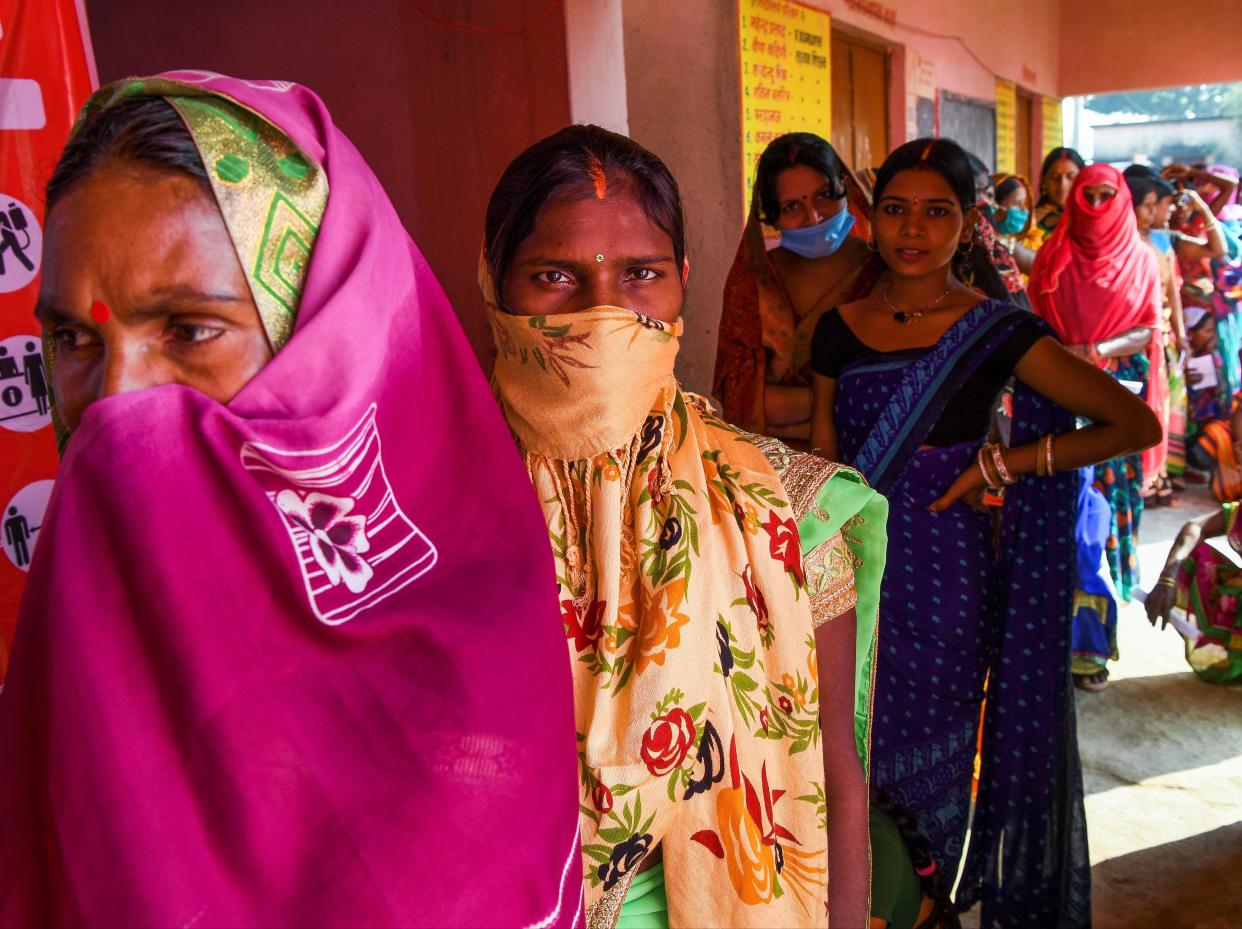Millions vote in 'referendum on Modi's Covid response' despite still soaring numbers in India

Voters flocked to the polls in India on Wednesday for the first time since the start of the coronavirus pandemic, on day one of a crucial election in the populous eastern state of Bihar.
The vote is being seen as the first real gauge of public opinion towards prime minister Narendra Modi, who ordered a strict national lockdown on 25 March that displaced millions of migrant workers, many of them hailing from Bihar itself.
There had been calls to postpone the vote, with all political parties addressing large campaign rallies in recent weeks where there appeared little effort to enforce social distancing or mask wearing.
But polling stations opened up regardless on Wednesday morning, with the first phase of voting involving 70 of the state’s 243 assembly seats.
"Face masks and sanitisers have been provided to the staff deployed on election duty," a polling officer told the Reuters news agency, and to begin with at least most stations appeared to be using their mandatory thermal scanners and other equipment.
However, these arrangements were not maintained for more than the first couple of hours of the day, a booth volunteer who asked not to be named told The Independent, as the heat of the day rose and numbers of voters increased.
“Some people who don’t come with masks are asked to cover their faces with a cloth or a dupatta (long scarf),” the volunteer said, while adding that most safety measures were abandoned amid complaints over the slow process.
The world’s biggest democracy has witnessed one of the worst Covid-19 outbreaks in the world, with nearly 8 million cases and 120,000 deaths.
The state of Bihar alone has seen 212,000 cases and over a thousand deaths from Covid-19. But it was also one of the most affected areas in March, as over two million of its workers were forced to walk back some thousands of kilometres from major financial hubs to their villages in the state. The lockdown also resulted in huge job losses in Bihar, and ravaged its economy – already one of the poorest in the country.
Mr Modi’s BJP is allied in the state with the incumbent Janata Dal (United), on paper a formidable coalition.
But it has also found itself at the centre of a national outcry after union finance minister Nirmala Sitharaman, during campaigning in the state, promised free coronavirus vaccinations to the people of Bihar as part of the BJP manifesto. The promise angered opposition parties and those in other states, who accused the BJP of politicising the pandemic response and dividing the nation.
Mr Modi won a resounding general election victory in spring 2019, but his BJP have had a tougher time winning control of state assemblies. In the past two years, the BJP has lost six state elections and gained power in only one.
Pollsters still expect the BJP’s coalition to retain power with a thin majority – but there is a chance that anger at the government’s handling of the virus could yet deliver a surprise verdict.
Voting will take place in three phases. After Wednesday’s polls, the next set of seats will be decided on the 3 November, before the final phase of voting on 7 November. Results are expected to be announced on 10 November.
Read more
Facebook India policy chief steps down after row over ‘hate speech
Teenager in India kills himself after shattering mobile phone screen
Kamala Harris fever is gripping India – but not everyone is convinced
Trump’s GOP ‘resembles authoritarian parties in Hungary and Turkey'


